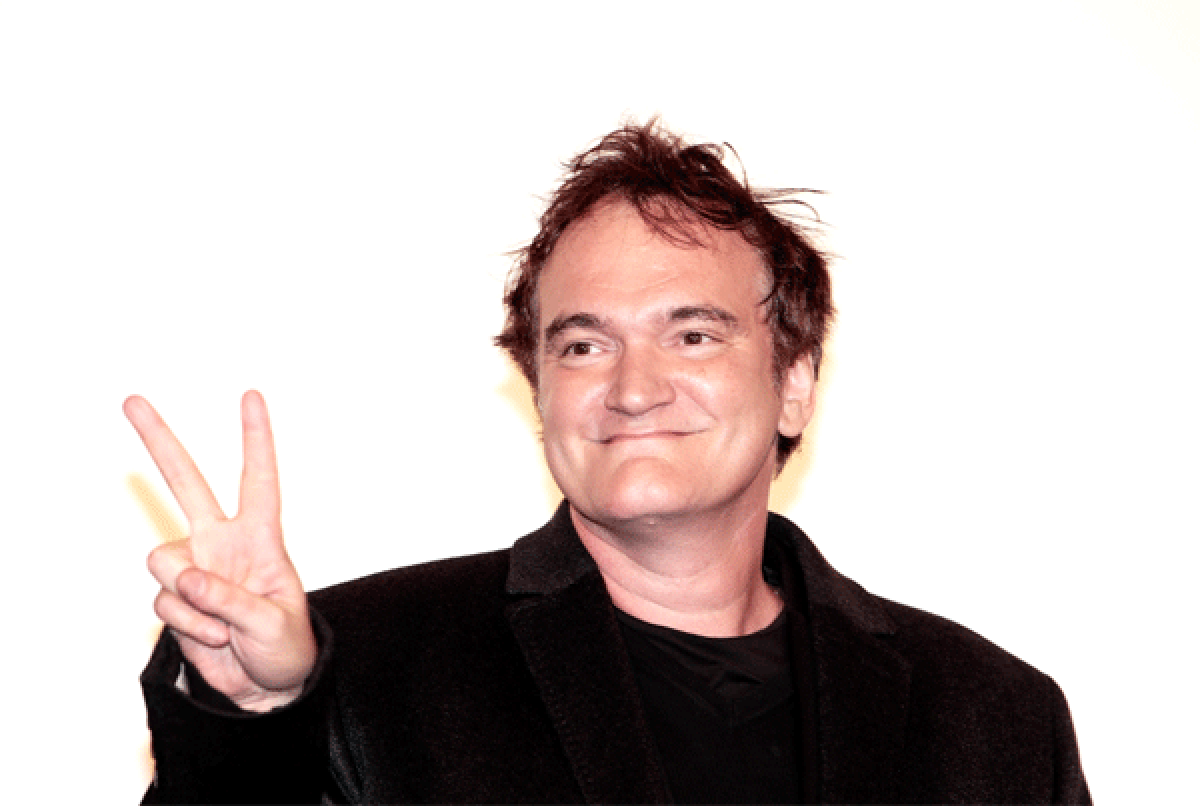Hollywood’s outsiders come inside

- Share via
It’s been nearly a generation since Quentin Tarantino burst on the scene with his raucous indie film “Pulp Fiction” in 1994, and Hollywood is a very different place.
The once-vibrant independent film scene that Tarantino helped shape has shrunk to a handful of players who have honed their survival skills in a harsh distribution landscape.
But Tarantino is back at the Oscars this year, this time with another wonderfully incendiary piece of entertainment, “Django Unchained.” And so, as it happens, are a group of other directors from his generation of outsiders — only now they are the new Hollywood establishment. There’s Ang Lee with “Life of Pi,” David O. Russell with “Silver Linings Playbook,” Paul Thomas Anderson with “The Master” and Wes Anderson with “Moonrise Kingdom.”
These are the directors who, in the 1990s, upended traditional rules about character and narrative, making movies that shocked audiences with their explicit sex and violence, and generally setting traditional Hollywood on its ear.
Now, their ethos has penetrated the mainstream of movie culture, and that shift is made clear by their dominance at the event that most clearly defines the Hollywood establishment: the Oscars.
Their presence is welcome, but it does raise a question: Will the next generation of filmmakers be able to follow in their footsteps? It is harder than ever these days for auteur filmmakers — those with distinct visions to bring to the screen — to find a perch.
OSCARS 2013: Play-at-Home ballot
By 2010, half a dozen independent movie distributors had come and gone, victim to changing business models, the death of the DVD market, the rise of digital alternatives and competition for a diminishing share of consumer attention.
Warner Independent opened in 2003 and closed in 2008. Paramount Classics, founded in 1998, gave way to Paramount Vantage in 2006, and that too closed in 2008. New Line was reduced to a production arm of Warner Bros., entrusted with the “Lord of the Rings” series that had no tie to independent cinema.
First Look came and went. Overture lasted four scant years. Yari Film Group, founded in 2002, won best picture with “Crash” but still declared bankruptcy in 2008.
Most symbolically, the famed Miramax founded by Harvey and Bob Weinstein withered after 2005, when the founder-brothers parted company with the Walt Disney Co., which had purchased Miramax. The company was sold off to a construction magnate in 2010, and he recently sold his stake to another owner. The Weinsteins moved on and started a new company, named for themselves this time.
As the environment shifted, the rebel generation filmmakers were slow to find their rhythm. After a stunning crop of movies in 1999 — “Fight Club,” “Magnolia,” “Three Kings,” American Beauty,” “The Matrix,” “The Virgin Suicides” and “Being John Malkovich” — the rebel generation stalled. It was almost as if this collective effort left them blinded by the limelight and struggling with what to say next.
But the major studios remained enamored of their talents. One by one, they were drafted to take on the blockbuster titles that fed the mainstream Hollywood machine. Their voices were co-opted in the service of franchises such as “Harry Potter and the Prisoner of Azkaban” (directed by Alfonso Cuaron of “Y Tu Mama Tambien,”) and “The Green Hornet” (directed by Michel Gondry of “Eternal Sunshine of the Spotless Mind”).
Sometimes the collaboration was disappointing. But it also yielded works of creative genius, such as the union between Christopher Nolan (“Memento”) and Warner Bros., which culminated with Nolan’s reimagining of the Batman stories.
Some of the rebels seemed to languish for a time, tinkering around the edges of their craft. But in the last several years, many have begun to creatively reengage in a way that has cemented their place as the leading cinematic voices of their generation.
In 2010, Russell returned to the field with “The Fighter,” weaving his quirky psychodramatic touches through the true story of a comeback kid, and was nominated for the directing Oscar. After five years without making a film, Paul Thomas Anderson brought to life “There Will Be Blood” in 2007 and “The Master” in 2012. David Fincher delivered “The Social Network,” Darren Aronofsky weighed in with “Black Swan” and Alexander Payne graced the screen with “The Descendants.”
In addition to this year’s Oscar nominees, 2012 brought a number of films — some daring, some disastrous, all accomplished — from this same generation: Christopher Nolan’s “The Dark Knight Rises,” “Cloud Atlas” from Lana and Andy Wachowski and Tom Tykwer, and Steven Soderbergh’s “Magic Mike.”
And what of the next generation? Will they get the chance in this shifting world to make films that will challenge the new establishment? It won’t be easy, but then it never was. And we may already be seeing the future.
“Beasts of the Southern Wild” was nominated for four Oscars this year, including best picture. Writer-director Benh Zeitlin — still in his 20s — made his movie with a 6-year-old girl, a couple of million dollars and a bunch of baby pigs. But don’t call him an indie filmmaker. He rejects the term as way too establishment for him.
Sharon Waxman is the editor in chief of TheWrap.com and the author of “Rebels on the Backlot: Six Maverick Directors and How They Conquered the Hollywood System.” This essay is adapted from a new e-edition that was just published.
More to Read
A cure for the common opinion
Get thought-provoking perspectives with our weekly newsletter.
You may occasionally receive promotional content from the Los Angeles Times.










